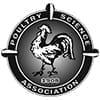Single-stage incubators boost egg hatchability and broiler chick quality - Interpretive Summary
Published: January 25, 2022
By: https://poultryscience.org/
by Sam Shafer
Thanks to breakthroughs in poultry science, improvements in the genetic potential of broiler chickens have cut the average production cycle in half. Now producers are looking for ways to improve egg hatchability and the uniformity and quality of broiler chicks.
Hatcheries use two major methods for incubating eggs: multi-stage systems and single-stage systems. Multi-stage incubators combine eggs from different farms and incubate embryos at different stages of development in a single machine. Single-stage incubators house embryos that are all at the same developmental stage, allowing producers to set the temperature, humidity and ventilation in accordance with what the embryos need.
The multi-stage system can be more cost effective, as the older, set embryos can transfer heat to the younger embryos nearby—establishing a thermal balance in the machine and reducing energy costs.
In a new Poultry Science® study, researchers at Brazil’s Universidade Federal de Goiás, investigated the pros and cons of the two systems when it comes to hatching and rearing broiler chickens. The scientists found that single-stage incubators are associated with lower mortality and higher chick quality. The study does not link incubator type to subsequent broiler performance.
“Artificial incubation of fertile eggs from Cobb broiler breeders should be performed in single-stage incubators to obtain better productivity,” write Mesquita et al. “The single-stage system not only enhanced hatchability results, it also improved chick quality.”
For the study, the researchers assessed hatchability, hatch window, and residual analysis in a total of 126,800 eggs. Eggs were incubated in groups of 1,400 at a time, with half going to each incubator type.
Although egg weight was the same in both groups, the researchers found that the multi-stage eggs had a greater egg weight loss. The percentage hatch and the percentage fertile hatch was higher in the system-stage eggs.
“The better hatchability obtained in SS [single-stage] can be explained by the more efficient control of temperature, RH [relative humidity] and ventilation,” write the study authors. “In addition, because eggs from the same batch are usually incubated together in SS, differences in eggshell weight, eggshell quality, and egg health are minimized.”
Eggs in the multi-stage incubators did have a shorter hatch window, though both systems had hatch windows within the recommended parameters. Eggs in the single-stage incubators had an earlier onset of hatching by about four hours.
The team then accessed chick quality. They found that incubator type had no effect on chick body weight at hatch or percentage of chick body weight at hatch in relation to egg weight. However, the yolk-free chick body weight was higher for chicks hatched in the single-stage group.
Overall, single-stage chicks had an average physical quality score of 94.10 points, compared with 91.79 points for the multi-stage chicks. The single-stage group also had a higher percentage of chicks with scores above 96.00 points; whereas, the multi-stage group had a higher percentage of chicks in lower ranges of quality (76–80 points and 86–90 points).
Going forward, the researchers recommend an economic analysis of the financial costs and benefits of transitioning more hatcheries to single-stage systems.
What does this study mean for producers?
- Hatcheries using single-stage incubation systems may have a higher hatch rate and a greater percentage of high-quality day-old chicks.
- Under optimal conditions, such as a short hatching window, the incubator system did not affect later broiler performance.
The full paper, titled “Results of hatching and rearing broiler chickens in different incubation systems,” can be found in Poultry Science® and online here.
DOI: 10.1016/j.psj.2020.09.028
Source
https://poultryscience.org/Related topics:
Mentioned in this news release:

Recommend
Comment
Share

Would you like to discuss another topic? Create a new post to engage with experts in the community.



